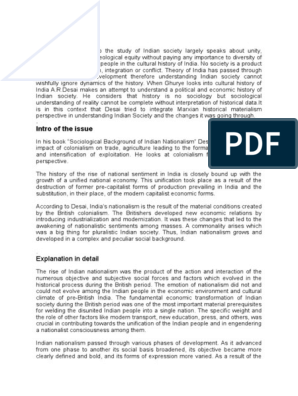100% found this document useful (1 vote)
1K views2 pagesNehruvian Model
Nehru believed that political democracy would be meaningless without economic democracy. He advocated for socialism and state control over the economic sectors to reduce economic disparity and accelerate industrialization. Nehru wanted a practical approach that supported both rural development and heavy industry. He established many policies around land reform, central planning, and controlling foreign investment to develop India's economy in a way that best suited its needs. However, poverty and unemployment remained issues during his governance due to the difficulty balancing Gandhian and industrialization approaches.
Uploaded by
Vinshi JainCopyright
© © All Rights Reserved
We take content rights seriously. If you suspect this is your content, claim it here.
Available Formats
Download as DOCX, PDF, TXT or read online on Scribd
100% found this document useful (1 vote)
1K views2 pagesNehruvian Model
Nehru believed that political democracy would be meaningless without economic democracy. He advocated for socialism and state control over the economic sectors to reduce economic disparity and accelerate industrialization. Nehru wanted a practical approach that supported both rural development and heavy industry. He established many policies around land reform, central planning, and controlling foreign investment to develop India's economy in a way that best suited its needs. However, poverty and unemployment remained issues during his governance due to the difficulty balancing Gandhian and industrialization approaches.
Uploaded by
Vinshi JainCopyright
© © All Rights Reserved
We take content rights seriously. If you suspect this is your content, claim it here.
Available Formats
Download as DOCX, PDF, TXT or read online on Scribd
/ 2

























































































